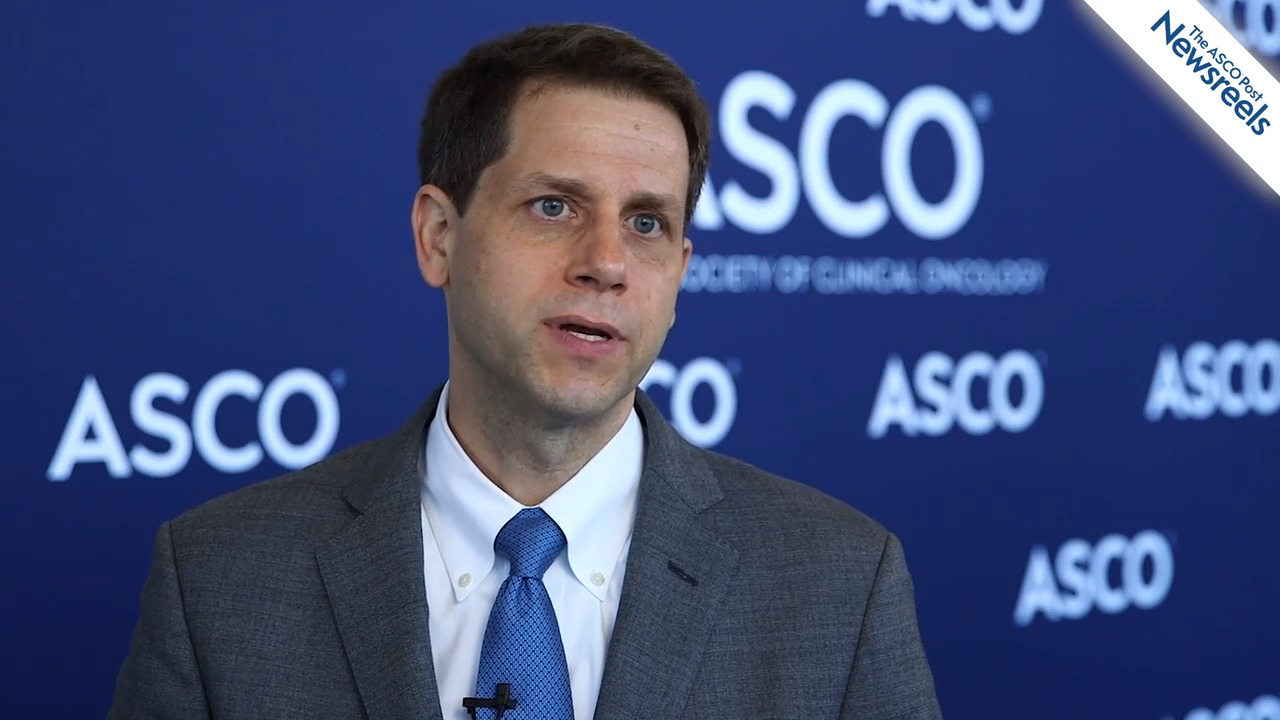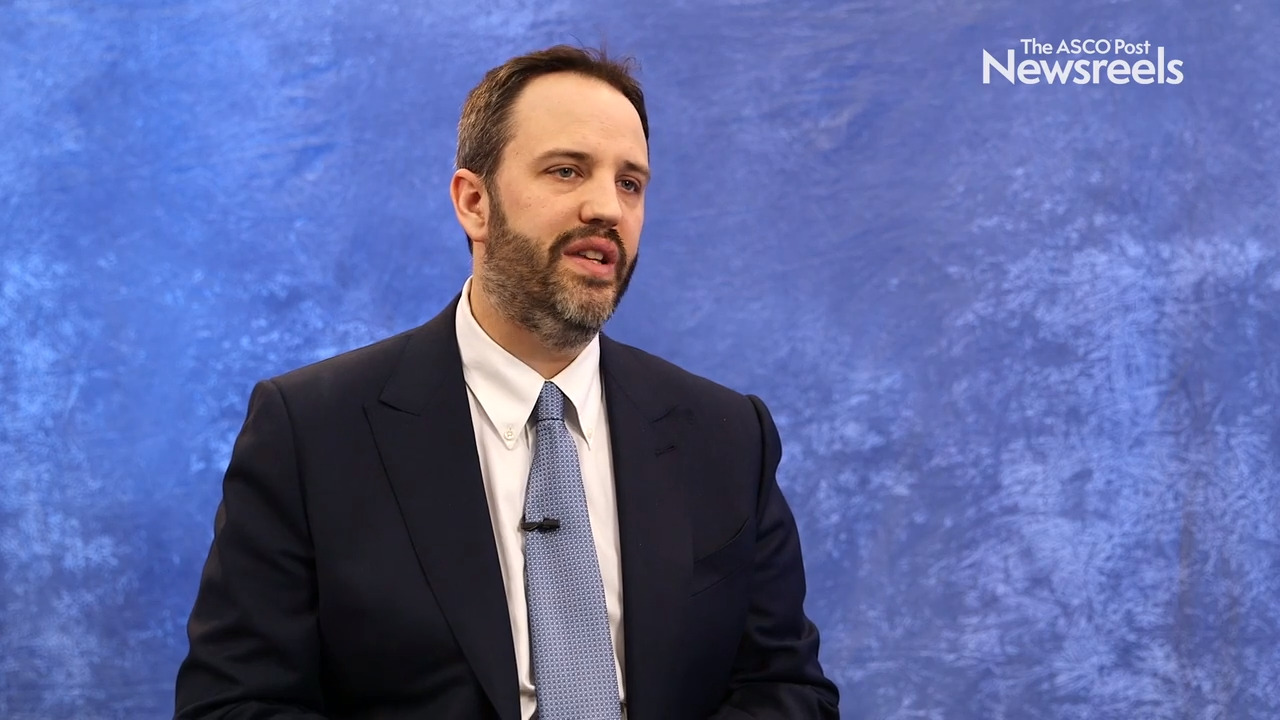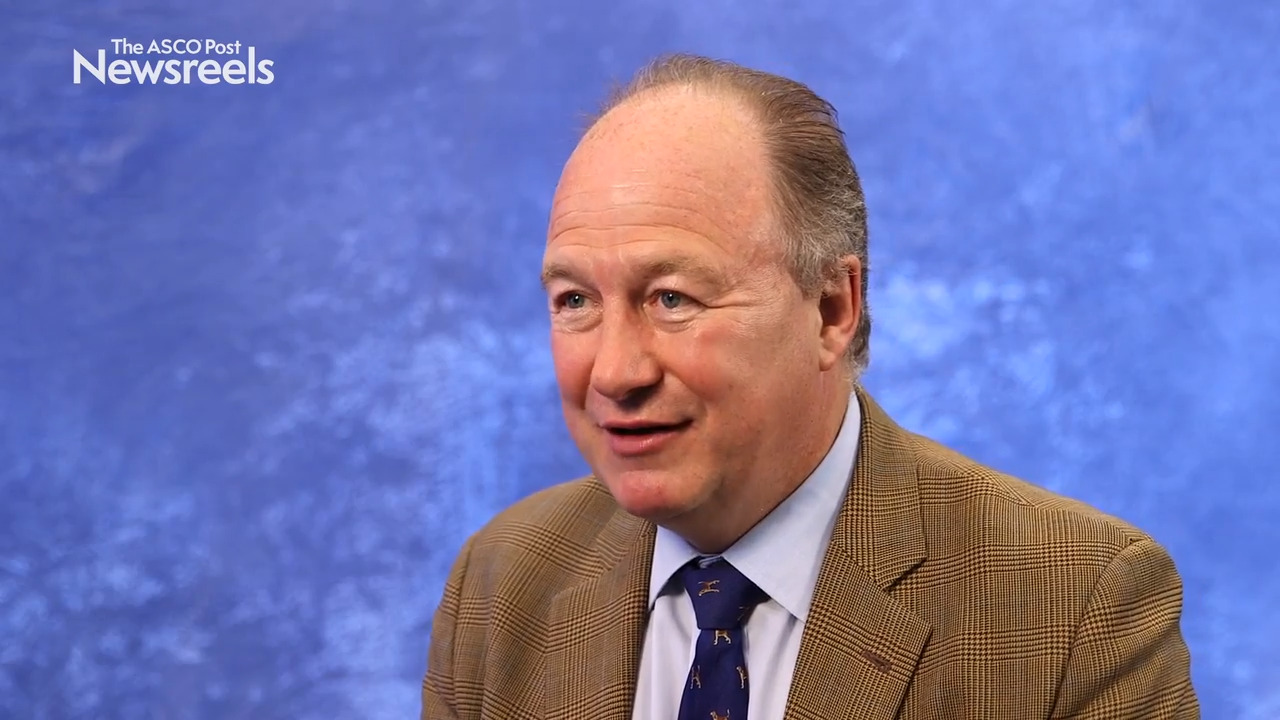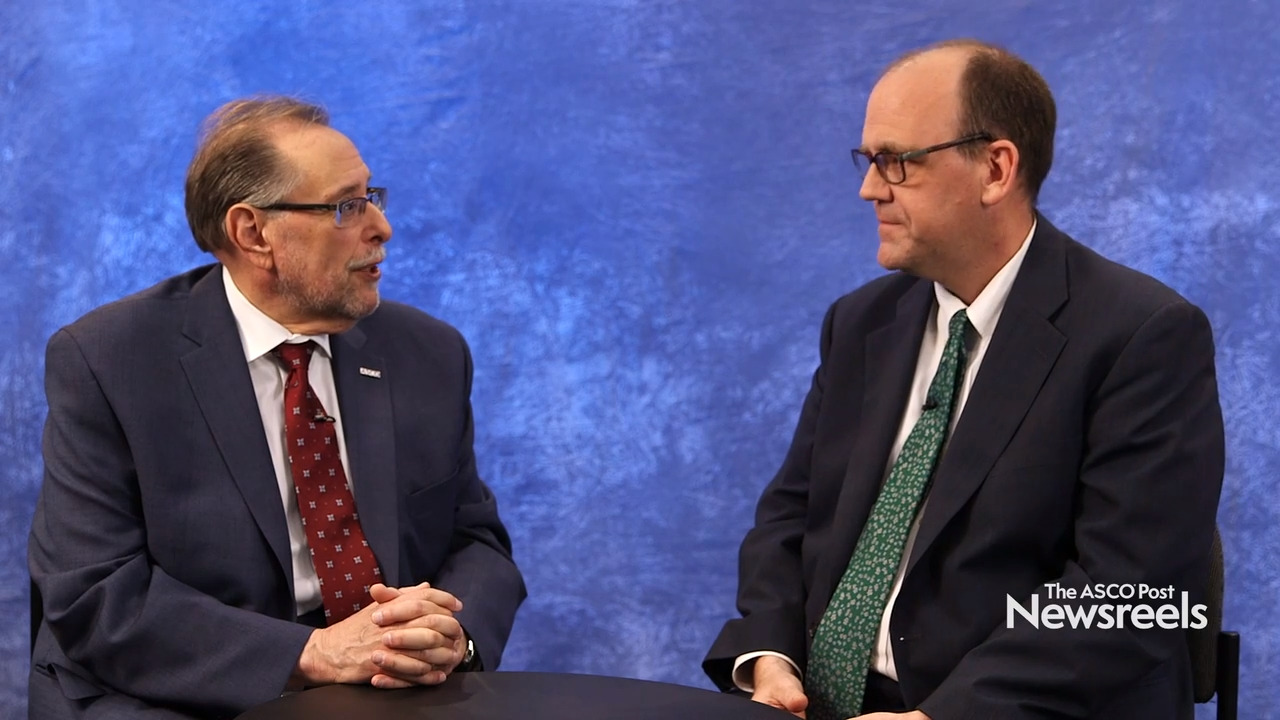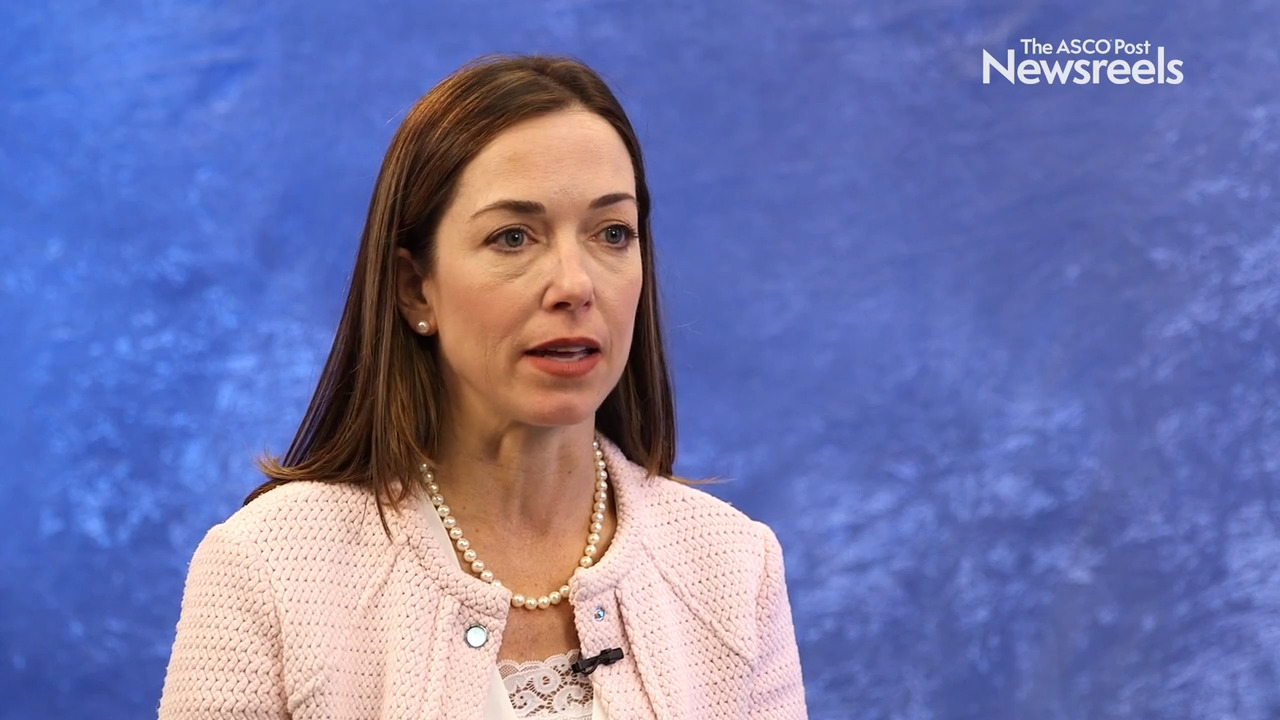Brian C. Baumann, MD, on Locally Advanced Bladder Cancer: Adjuvant Radiotherapy After Radical Cystectomy
2019 ASCO Annual Meeting
Brian C. Baumann, MD, of Washington University School of Medicine, discusses study findings suggesting postoperative radiotherapy may be an option for patients with locally advanced bladder cancer after radical cystectomy who are unable or unwilling to use adjuvant chemotherapy (Abstract 4507).
William D. Tap, MD, of Memorial Sloan Kettering Cancer Center, discusses negative study findings on doxorubicin plus olaratumab vs doxorubicin plus placebo, which showed no difference in overall survival between the two treatments in patients with advanced soft-tissue sarcomas. The manufacturer is currently withdrawing olaratumab from the global market (Abstract LBA3).
Justin F. Gainor, MD, of Massachusetts General Hospital, discusses updated findings from the ARROW study in which BLU-667, a selective RET inhibitor, demonstrated clinical activity and tolerability in patients with advanced RET fusion–positive non–small cell lung cancer (Abstract 9008).
Paul G. Richardson, MD, of Dana-Farber Cancer Institute, discusses findings from the phase III ICARIA-MM trial showing that isatuximab, pomalidomide, and low-dose dexamethasone significantly improved progression-free survival and overall response vs pomalidomide and dexamethasone (Abstract 8004).
Richard L. Schilsky, MD, of ASCO, and R. Donald Harvey, PharmD, BCOP, of Winship Cancer Institute of Emory University, discuss their study findings that expanding the clinical trial eligibility criteria for patients with advanced NSCLC would enable nearly twice as many people to be considered for participation (Abstract LBA108).
Sara A. Hurvitz, MD, of the UCLA Jonsson Comprehensive Cancer Center, discusses the first study of ribociclib plus endocrine therapy vs endocrine therapy alone to demonstrate significantly longer overall survival in peri- and premenopausal women with advanced breast cancer (Abstract LBA1008).
